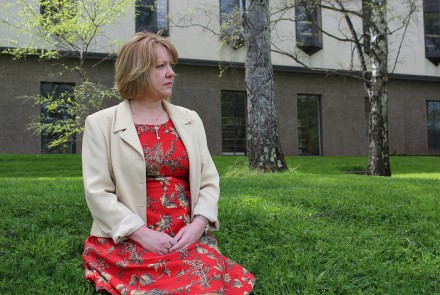Retirement blues
At the height of the GFC it was ‘normal’ to feel anxious. If it is expected that everyone is feeling bad then this becomes a type of social norm, which can protect us from distress
The Global Financial Crisis (GFC) sent shock-waves around the world as images of banks shutting down, stock prices plummeting and people being evicted from their homes filled television sets. What didn’t get much attention was the longer term health impacts of the global downturn.
Now a long-running ANU health survey has found that older Australians who suffered during the crisis were still feeling low as stocks began to rise.
“Our research has shown that older people had increased depression and anxiety after the period of the GFC compared to before the GFC,” says Dr Kerry Sargent-Cox from the Centre for Research on Ageing, Health and Wellbeing, part of the ANU College of Medicine, Biology and Environment.
“The study has three cohorts that we’ve been following for the past 12 years,” explains Sargent-Cox. “When the study started off, they were aged 20-24, 40-44 and 60-64 years. What was fortuitous about this was that with our older age group we conducted interviews just before the GFC – in 2008 – and then followed up right in the middle of the GFC period across 2009 and 2010, and again when the crisis had slowed down.”
Sargent-Cox’s research has shown that not only did the older cohort have worse mental health outcomes during the peak of the GFC, but they deteriorated further over the following year.
“We were expecting people to have worse mental health during the peak of the GFC. We actually found the opposite: that it was those that we interviewed in 2010, after the GFC had slowed down, who actually had worse anxiety and depression symptoms overall.”
Sargent-Cox explains that people in this age group may have continued to suffer mentally because they were still feeling the effects of the crisis after their younger counterparts had moved on.
“What we think is going on is that at the height of the GFC it was ‘normal’ to feel anxious. If it is expected that everyone is feeling bad then this becomes a type of social norm, which can protect us from distress.
“But stepping outside a social norm can provoke anxiety. Therefore, when the GFC was considered over and everybody was getting back to normal – that is, the social norm had reverted to ‘all is well’ – those that were still feeling an impact may have had those negative effects compounded; it can be worse, because it’s no longer ‘normal’ to be suffering.”
Sargent-Cox explains that older Australians may also have continued to feel the effects of the GFC because of the nature of their financial status.
“I suspect one of the reasons for the increase in depression and anxiety in this age group is to do with being around retirement age. Other people who have got a little bit longer in the workforce know they can rebuild after such a crisis. But if you experience a financial crisis around the time you’re retiring and you don’t have the opportunity to continue to keep working, that could impact significantly on your superannuation or savings.”
Sargent-Cox says the next stage of the research is underway and will show whether the effect of the GFC on people’s mental health is finally wearing off.
“This older group is currently going through the next wave of interviews. What will be really interesting is to see whether they’ve recovered or if the levels of anxiety and depression symptoms have stayed up. I’m hoping for the former.”

